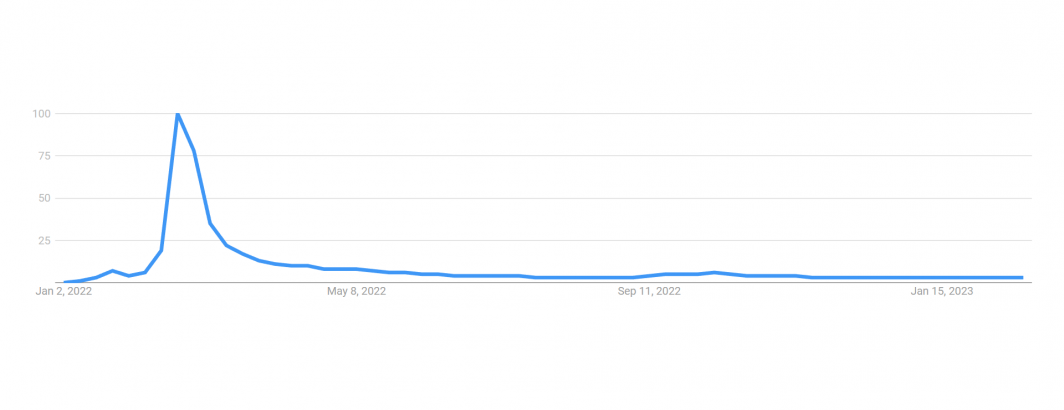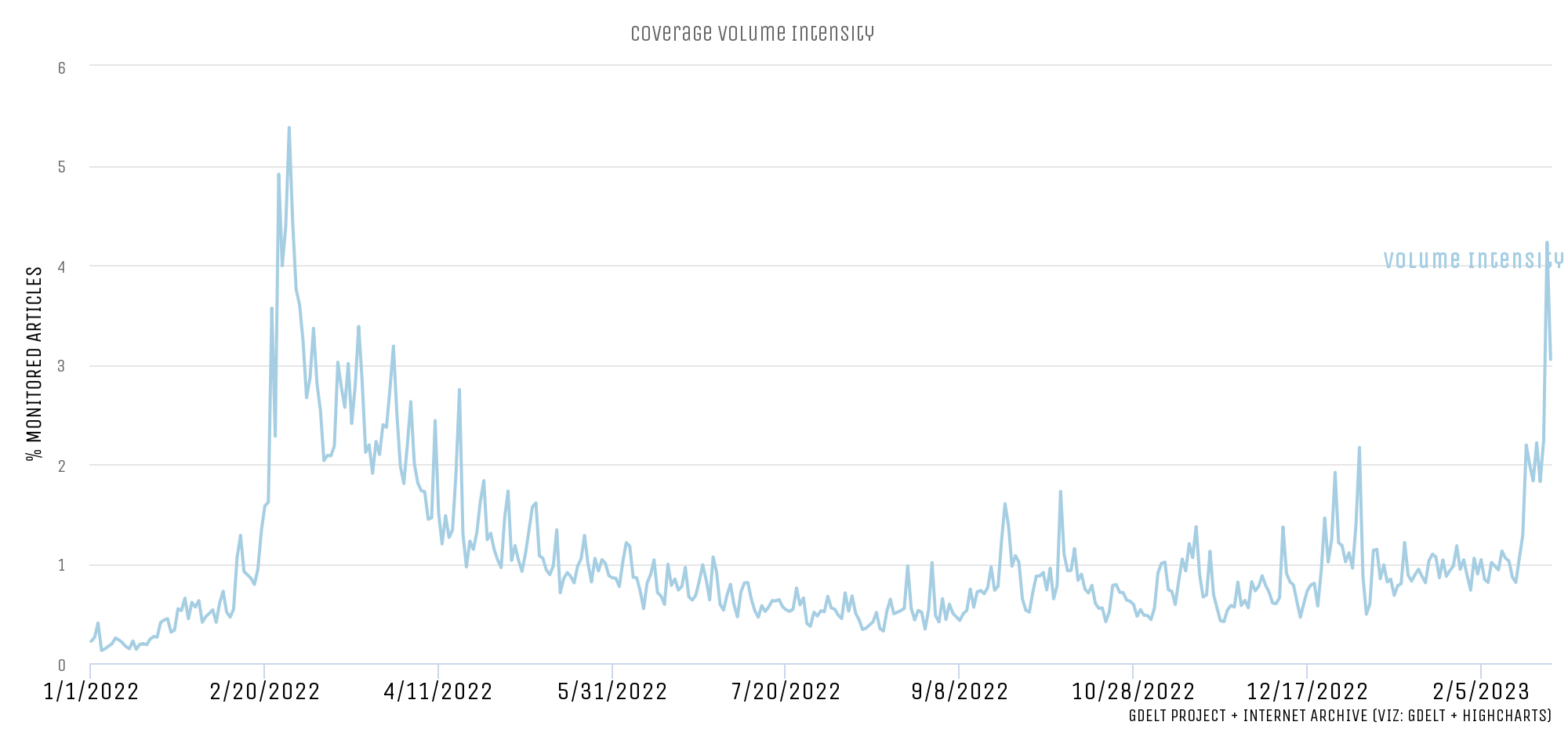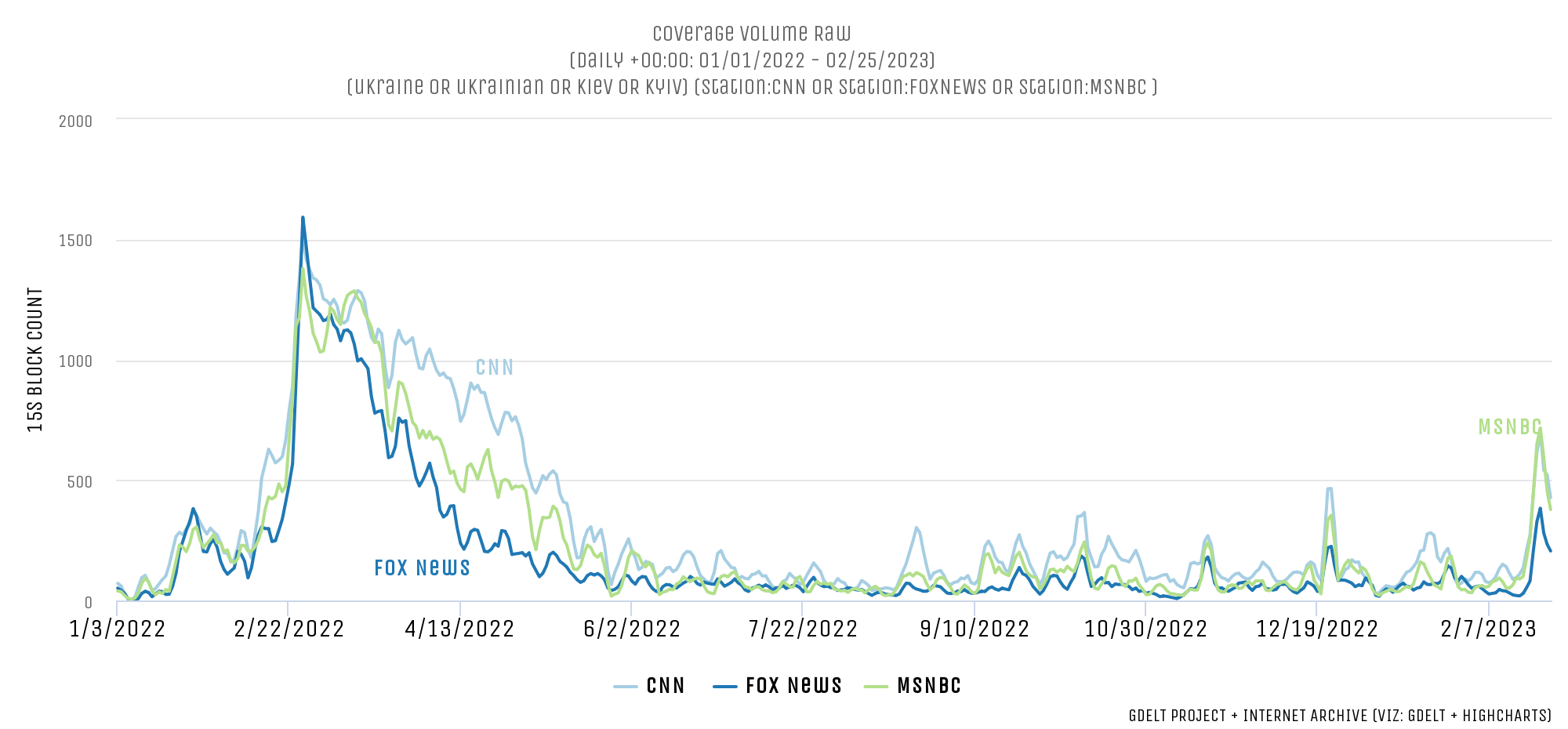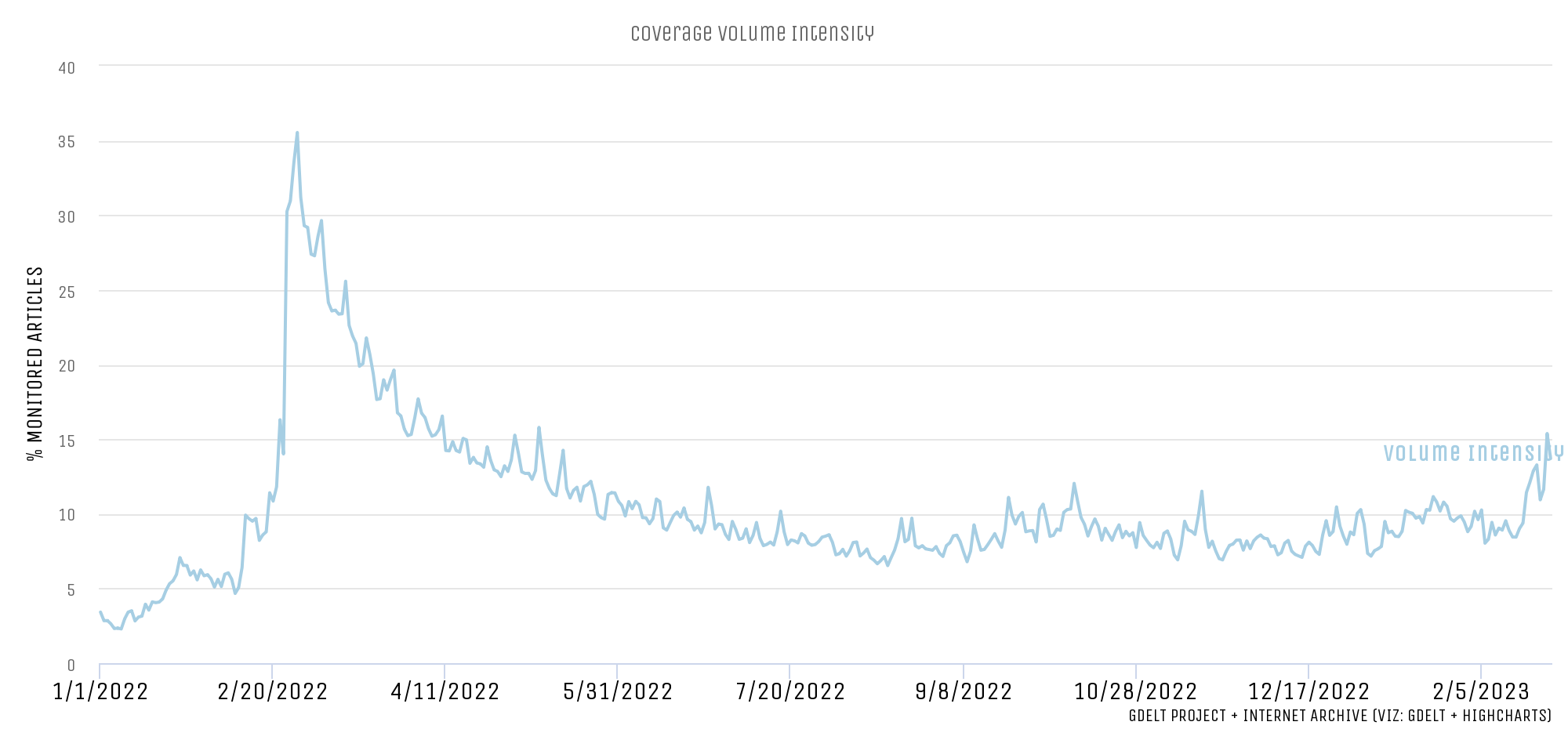
The one-year anniversary of Russia's invasion of Ukraine yielded only a small bump in media coverage of the war on US TV news, with a much larger peak two days prior with President Biden's visit to the country. On the actual one-year anniversary, coverage was only just above previous bursts since last June. Rather than an outpouring of coverage celebrating Ukraine's year-long stand and recounting the US' assistance of weapons, intelligence, etc, even this major milestone failed to attract substantial coverage.
Worldwide online news coverage shows only a similar small burst of coverage – far from an outpouring of global coverage.
Worldwide search interest via Google Trends shows no measurable change of any kind around the anniversary, nor do searches for Ukraine itself, suggesting a global public that has moved on.
In contrast, global media coverage of a peace deal with Russia surged in advance of the anniversary, 
Web searches within the US for Ukraine and "peace" surged in the hours before the anniversary and remained highly elevated during the entire day.
In contrast, all US searches for Ukraine during that same period showed little change. This suggests a marked pivot by both the media and public towards an interest in a resolution to the conflict on its one-year anniversary.
Overall, these trends paint a troubling picture of global public interest and awareness of the war. That the one-year anniversary of Europe's largest land war in three-quarters of a century with global implications and which the US and Europe have provided intensive support would attract no more than a small bump of media attention or search interest raises numerous questions about the lack of a global outpouring of coverage. The surge in peace-related media coverage and search interest suggests that awareness and compassion fatigue are transitioning into a growing eagerness for a resolution to the conflict. That even President Biden's warzone visit attracted only a brief burst of coverage suggests even very-high-profile traditionally mediagenic events are struggling to break through.
What does this suggest? At the least, it suggests a need for a profound rethinking of strategic communication efforts around the war. Overcoming combined media and compassion fatigue is incredibly difficult and typically requires a critical narrative shift that fundamentally reframes the event, making it "newsworthy" again for media outlets and of "relevance" to the global public again. Possible avenues that have demonstrated success in previous events from other countries include a greater emphasis on "localization" in which local ground staff in each country work to translate the conflict into the domestic "master narratives" of that country's own history and consequences of adverse outcomes and "humanization" in which rather than telling the story through macro-level narratives and the stories of those in "faraway lands" it is told through local community members, often coupled with "meeting the audience" in both a platform and narrative space. Both of these have been significantly present in Ukraine's efforts to date, but a deeper dive into the trends above suggest limited impact and uptake and, based on previous examples we have studied in the past, suggests that "breaking" narrative shifts in these areas might boost media and public awareness. There are myriad other stratcom approaches that could also be explored here, but the graphs above suggest that it may be time for fundamental shifts in the narrative strategies and stratcom approaches being used to tell the story of the invasion in order to sustain, boost and shift the global narrative environment.




